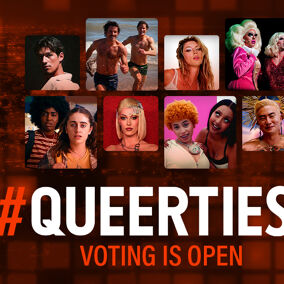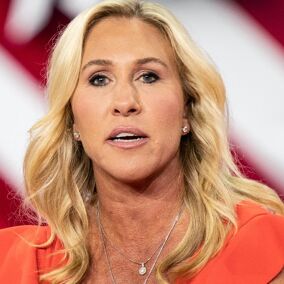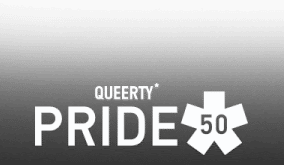
It had been a whirlwind spring for New York state. Golden boy Governor Eliot Spitzer had admitted to hiring a hooker and subsequently resigned, thus leaving the slot open for Paterson, a man who has proven to be a formidable, determined politician. Rather than waiting for legislatures to hammer out gay marriage, Paterson declared last May that New York must recognize out-of-state same-sex nuptials.
While certainly a big move for the state’s homos, Paterson’s directive threatened to derail Cook’s efforts in the Senate:
[Paterson] kind of changed the context. There was some push from the far right to push a Defense of Marriage Bill. We had to move to the defensive to try to defeat a defense of marriage bill. [The Senators] came to the determination not to move the bill. That, I think, made it harder for them to move forward with the safe schools bill. But when we look at the timing now, the marriage issue is not at the top of the list like it was two months ago. Now is a better time.
Timing wasn’t the only quantifiable factor in Safe Schools’ introduction last week.
Kate Glazer, a representative for supportive Senator John Bonacic, points also to New York’s evolving geography:
Politicians have to represent the people. I’ve seen a big shift in the Senator’s district from conservative Republicans to more Democrats. The numbers are there – there are more Democrats. People moved from the cities to the more rural areas and brought their ideologies with them. In particularly after 9/11 was the latest wave of people moving into the Senator’s district.
With the state’s changing landscape – and only a one-seat lead – New York’s Republican Senators can no longer rely on party loyalists. They must adapt and, more importantly, compete. And competition can be dangerous business.
Some state Republicans warn that too much of a shift – competitive or altruistic – could backfire. Assemblyman Joel Miller, a Republican who supports queer inclusive legislation, shed doubt on the Republican Senate’s malleability:
Standing Republican in the Senate, they tend to be a far more conservative ilk, and I’m not so sure that they can afford now – Republican is not a good brand name this year… I think problem right now with the Senate is that they’re hanging on with their fingernails. I’m not so sure they’re going to abandon their base in order to seek a more progressive audience.
Glazer and Cook, meanwhile, remain optimistic.
While similar bills have languished in committees for months, the ten supporting Senators introduced Safe Schools as a Rules Bill, which avoids the pitfalls of bureaucratic negotiation. The carefully plotted language, says Glazer, also overcomes many of Dignity’s previous hurdles: “I think these groups have tried to address the concerns of the more conservative members who have traditionally blocked it in the past.”
Coming from a Republican authorship, rather than the Democrat-driven Dignity Bill, Safe Schools benefits from party alliances. And it’s this point that provides the most important lesson: partisan politics aren’t always a bad thing, just as long as they’re put in the right hands, rather than the Right.
Don't forget to share:
Help make sure LGBTQ+ stories are being told...
We can't rely on mainstream media to tell our stories. That's why we don't lock Queerty articles behind a paywall. Will you support our mission with a contribution today?
Cancel anytime · Proudly LGBTQ+ owned and operated
 Ten New York Republican Senators made some serious gay headway when they introduced a queer inclusive anti-bullying bill last week. The move surprised many, especially considering that Senatorial Republicans have for six years dismissed a similar bill, the Dignity Bill. It’s not that oppositional Senators support bullying, but many objected to the bills’ explicit inclusion of gender identity and expression, ananathema for right-leaning lawmakers.
Entitled the “Safe Schools for All Children Bill,” this latest measure looks a lot like the Dignity Bill, including trans protections, but there are subtle differences. Perhaps most importantly, “Safe Schools” leaves no room for litigation. That is, students and parents aren’t granted the right to sue, a subject the Dignity Bill didn’t address. Safe Schools also includes the pragmatic cyber-bullying stipulation, another piece left out of Dignity.
Legislative differences aside, an examination of Safe Schools’ success over the oft-dismissed Dignity Bill provides some lessons in political persistence, timing and a bit of post-9/11 geography.
Jeff Cook, a political consultant who has worked with the organization since 2002, describes how he and his peers pushed for marriage equality in the Senate last year and, facing resistance, decided to venture into new territory.
Ten New York Republican Senators made some serious gay headway when they introduced a queer inclusive anti-bullying bill last week. The move surprised many, especially considering that Senatorial Republicans have for six years dismissed a similar bill, the Dignity Bill. It’s not that oppositional Senators support bullying, but many objected to the bills’ explicit inclusion of gender identity and expression, ananathema for right-leaning lawmakers.
Entitled the “Safe Schools for All Children Bill,” this latest measure looks a lot like the Dignity Bill, including trans protections, but there are subtle differences. Perhaps most importantly, “Safe Schools” leaves no room for litigation. That is, students and parents aren’t granted the right to sue, a subject the Dignity Bill didn’t address. Safe Schools also includes the pragmatic cyber-bullying stipulation, another piece left out of Dignity.
Legislative differences aside, an examination of Safe Schools’ success over the oft-dismissed Dignity Bill provides some lessons in political persistence, timing and a bit of post-9/11 geography.
Jeff Cook, a political consultant who has worked with the organization since 2002, describes how he and his peers pushed for marriage equality in the Senate last year and, facing resistance, decided to venture into new territory. 


































































Timothy Kincaid
fascinating
K-Dogg
Its a start…
Cam
The fact of the matter is, there were some very pro-gay republicans on the national stage, William Weld was a rising star in the party but then Jessie Helms fucked him over and basically stopped the pro-gay GOP wing of the party dead in it’s tracks. It’s time for those sad old fucks like helms “The ones who are still alive” to realize that you can’t keep scaring up votes by demonizing those who are “Different” it won’t work forever. good for New york and it’s about time.
seitan-on-a-stick
Oh, I thought this was about the GOP learning how the Democratic NYS House and Senate Majority want their Cawfee when both houses Go Dem in 2009 and Gay Marriage bitch-slams them into the Stone Age!
Joann Prinzivalli
The Dignity for All Students Act (DASA), passed by the Assembly and sponsored in the Senate by Senator Thomas K. Duane, is a better bill, but Democrat-sponsored bills get no traction in the State Senate.
The Senate bill coming from the Rules committee means that the Republican leadership supports the bill.
The really good news is that this bill is the first Senate bill in New York with Republican sponsorship that includes “gender identity or expression” as a protected class.
The 2003 Senate “Schools as Safe Harbors” bill did not include gender identity/expression (GI&E) protection – and I am pleased that PFLAG, GLSEN and ESPA all stood firm at that time, and the Assembly stood firm on this aspect as well, when that bill was conferenced with Dignity for a compromise. At that time, the Senate Republicans were sadly not ready for GI&E.
Since a respected polling agency earlier in 2008 showed that 78% of New York voters statewide support legal protection of GI&E as a protected class, the Republican leadership seems to be signalling a willingness to be inclusive on this issue.
An analysis comparing the Safe Schools Bill with DASA indicates the bills are very similar – but there is one spot in which the Republican Senate bill is weak – and that is in the reporting requirement. Both bills provide that school employees aware of bullying/harrassment must report incidents, but the Republican bill provides protection from disciplinary action or professional misconduct for school employees who know of, but do not report, acts of bullying.
Despite this fundamental flaw, I would recommend passage of this “Safe Schools” bill in the Senate, with a hope that the Assembly can eliminate this particular weakness in a conference between the houses. Democrats in the Senate should highlight the weakness in floor debate, but should not let the flaw keep the bill from passage.
Joann Prinzivalli
State Director
New York Transgender Rights Organization (NYTRO)